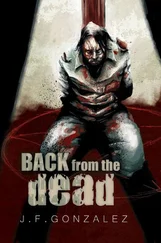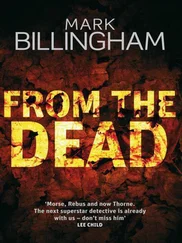“Lennart said we shouldn’t tell anybody else about the sandal,” said Julia.
“Oh, he did, did he.”
Gerlof kept on gazing out of the window. He did not look at his daughter.
“What’s the matter?” asked Julia.
“You didn’t have to tell him about the sandal.”
“You said I should tell people.”
“Not the police. We can solve this ourselves.”
“Solve?” said Julia, her voice rising. “What do you mean, solve it ourselves? What on earth are you thinking? Do you think the person who took Jens away, if somebody did take him away... do you think that person’s going to turn up here and ask to see the sandal? Is that what you really think? That he’s just going to turn up here, after all these years, and tell you what he did?”
Gerlof didn’t reply; he was still staring out of the window with his back to her, and that just made Julia even more agitated.
“What did you actually do that day?” she went on.
“You know what I did,” said Gerlof quietly.
“Oh yes, I know,” said Julia. “Mum was tired and your grandchild needed looking after... and you went down to the sea to sort your nets out. Because you were going fishing.”
Gerlof nodded. “Then the fog came,” he said.
“Yes, a real pea-souper... but did you go home then?”
Gerlof shook his head.
“You stayed with your nets,” said Julia, “because it was much more enjoyable being alone down by the sea than looking after a small child. Wasn’t it?”
“I was listening all the time I was down there,” said Gerlof without looking at her. “There wasn’t a sound. I would have heard Jens if he’d—”
“That’s not what this is about!” Julia broke in. “It’s about the fact that you were always somewhere else when you should have been at home. That everything was on your terms... That’s always the way it was, all the time.”
Gerlof didn’t reply. He thought the sky had grown darker outside the window. Was the twilight coming already? He really was listening to what his daughter was saying, but he couldn’t come up with a good answer.
“I suppose I was a bad father,” he said at last. “I was often away, I needed to be away. But if I could have done anything for Jens that day... If the whole day could have been changed...”
He stopped speaking, struggling with his voice.
There was an unbearable silence in the room.
“I know, Dad,” said Julia, eventually. “How can I point the finger at you? I wasn’t even on Öland that day. I went into Kalmar and I could see the fog drifting in under the bridge as I drove across the sound.” She sighed. “How often do you think I’ve regretted leaving Jens that morning? I didn’t even say goodbye to him.”
Gerlof breathed in, then out again. He finally turned and looked at her.
“On Tuesday, the day before Ernst’s funeral, I’ll take you to the person who sent me the sandal,” he said.
Julia didn’t speak.
“I know who it was,” said Gerlof.
“Are you a hundred percent certain?”
“Ninety-five.”
“Where does he live? Here in Marnäs?”
“No.”
“In Stenvik?”
Gerlof shook his head. “Down in Borgholm,” he said.
Julia was quiet for a while, as if she thought this might be some kind of trick.
“Okay,” she said. “We’ll take my car.”
She bent to pick her coat up from the bed.
“What are you going to do now?” Gerlof asked.
“Don’t know... I’ll probably go down to Stenvik and rake up some leaves around the cottage, or something. Now that the electricity and the water are on I can cook in the cottage, but I’ll probably keep sleeping in the boathouse. I sleep well there.”
“Good. But stay in close touch with John and Astrid,” said Gerlof. “You need to stick together.”
“Of course.” Julia put her coat on. “I was over in the churchyard, by the way. Lit a candle on Mum’s grave.”
“Good... That means it’ll burn for five days, right up to the weekend. The church council looks after the graves. I don’t get there very often, unfortunately...” Gerlof coughed. “Had they dug a grave for Ernst yet?”
“Not that I noticed.” She added, “But I did find Nils Kant’s grave by the wall. That was what you wanted me to see, wasn’t it?”
“Yes.”
“Before I saw the grave, I was thinking Nils Kant should have been a suspect,” said Julia, “but now I understand why nobody mentioned him.”
Gerlof contemplated whether to say something — perhaps he should point out that the best cover for a murderer has to be to play dead — but he didn’t speak.
“There were roses on the grave,” said Julia.
“Fresh roses?”
“Not really,” said Julia. “From last summer, maybe. And another thing...”
She pushed her hand into her coat pocket and took out the little envelope that had been with the roses. It had dried out now, and she passed it over to Gerlof.
“Maybe we shouldn’t open it,” she said. “I mean, it’s private and not...”
But Gerlof quickly slit open the envelope, slid out the little piece of white paper, and read the contents.
“ ‘We shall all stand before the judgment seat of God.’ ” He looked at Julia. “That’s all it says... it’s a quote from Saint Paul’s letter to the Romans. Can I keep this?”
Julia nodded. “Are there usually flowers and notes on Kant’s grave?” she asked.
“Not often,” said Gerlof, placing the envelope in one of the desk drawers. “But it’s happened a few times over the years... flowers, at least. I’ve seen bunches of roses there.”
“So Nils Kant still has friends alive?”
“Yes... at least somebody wants to remember him, for some reason,” Gerlof said, then added, “People who have a bad reputation sometimes attract admirers, after all.”
There was another silence.
“Okay. I’m off to Stenvik, then,” said Julia, buttoning her coat.
“What are you doing tomorrow?”
“I might go to Långvik. We’ll see.”
When his daughter had left the room, Gerlof’s shoulders slumped with weariness. He raised his hands and saw that his fingers were shaking. It had been an exhausting afternoon, but he still had one more important thing to do today.
“Torsten, did you bury Nils Kant?” asked Gerlof a few hours later.
He and the old man were sitting at separate tables, all alone in the activity room in the cellar. After dinner Gerlof had taken the elevator down to the activity room and sat there for over an hour waiting for another resident, an old woman from the first floor, to finish her interminable weaving.
His aim was to be alone with Torsten Axelsson, who had worked in Marnäs churchyard from the war years up to the mid-1970s. While Gerlof was waiting, the autumn darkness had thickened outside the narrow cellar windows. It was evening.
Before asking his key questions, Gerlof had sat there chatting to Axelsson about the impending funeral, mainly to keep him in the room. Axelsson too suffered from rheumatism, but his mind was razor sharp and he was usually an entertaining companion. He didn’t seem to have the same nostalgic yearning for his work as a gravedigger as Gerlof had for his years at sea, but he’d willingly stayed and chatted about old times.
Gerlof was sitting at a table covered with bits of wood, glue, tools, and emery cloth. He was working on a model of the ketch Packet, Borgholm’s last sailing ship, which had become a pleasure boat in Stockholm in the sixties. The hull was finished, but he needed to do some more work on the rigging, and of course it wouldn’t be completely finished until it was in the bottle, and he could raise the masts and fasten off the final ropes. It all took time.
Читать дальше












